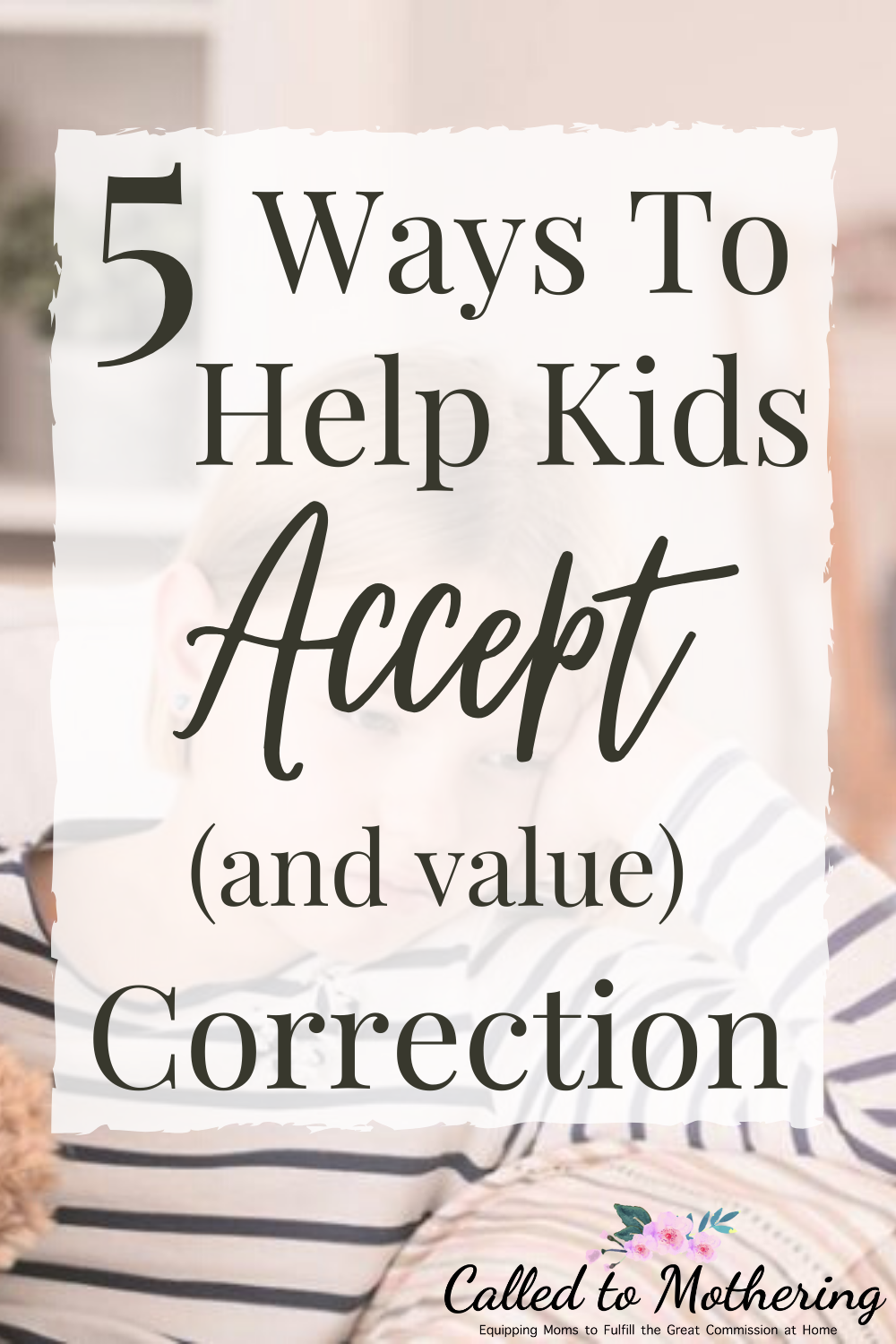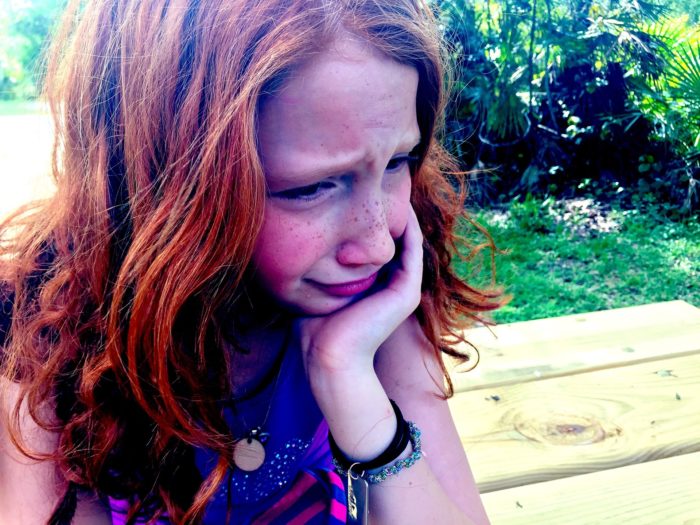
One of the best things we can give our children is the ability to think rightly about their faults and process their weaknesses well. How? It starts by teaching kids to accept and value correction.
One of the jobs of correction is to reveal a character flaw, mistake, or sin. But when most children are faced with that reality, they often don’t like it and don’t know how to respond wisely.
Some have a tendency to blame, rationalize, or even get angry to protect themselves from their own guilt.
Some kids believe that being corrected is actually a sign of failure. But it’s not correction itself that determines weakness; it’s the response to the correction.
So how do we help them understand the value of being corrected, so that we can break through their defenses and reach their hearts?

1. Show Them the Right Way To Handle Guilt
Guilt can be used by God to motivate us toward admitting an offense and taking the proper action to make amends. It’s ultimately what leads to repentance.
Shame, on the other hand, is an unhealthy emotion that leads to feelings of inadequacy and failure. We shouldn’t make the mistake of shaming our kids when we’re frustrated to get their attention or drill their wrongdoings home.
Guilt is solved through Jesus’ sacrifice on the cross, so that’s where we need to lead our kids.
Instead of lengthy lectures, harsh punishments, or sentences that begin with “how many times do I have to tell you…”, we need to use their behavior as an opportunity to share the Gospel.
Once we help them understand how to seek forgiveness from God through faith in Christ, then they can do what’s necessary to seek forgiveness from someone else and try to make things right with that person.
2. Use the Scriptures
One kid may have perfectionist tendencies that provide an internal message which says, “you’ll never measure up”, or a fear that admitting an offense somehow makes him a bad person.
They need to understand that correction isn’t a personal attack, but rather a tool for growth instead!
There’s a “stupid” verse in the Bible I’ve sometimes used with my children after they demonstrated a bad attitude during discipline.
Whoever loves discipline loves knowledge, but he who hates correction is stupid. – Proverbs 12:1
This really drives the point home that the person himself isn’t foolish; the act of rejecting correction is.
The book of Proverbs is full of those one or two line zingers that cut to the quick and speak right to the heart.
The 23rd verse of Chapter 6 is helpful to use also when trying to get our kids to see correction as a valuable tool. It essentially says that corrections bring life, and who doesn’t want to increase their quality of life?

3. Change Their Internal Dialogue
Our kids need to learn how to use different words than they’re used to during correction. Many default to saying, “I was wrong; I’m so dumb”, instead of the better, more accurate response: “I was wrong; I can learn from that.”
Sometimes the best way to teach a child something new is through playing a game. Grab a stack of cards you use to play Memory with, and make sure that not all of them have an exact match before placing them face down.
Then, as you play the game with your children have them practice saying the new response each time they turn over cards without any matches.
As children say this phrase over and over, they’re establishing a pattern in the game that can be translated into and then reinforced in real life situations.
The point we want to make is that God wants us to learn from mistakes, not beat ourselves up or attack other people.
4. Handle Correction Times Effectively
If we’re being honest, many times we don’t handle correction times with our children well. We get irritated or annoyed with the process, because we’re dealing with the same things over and over again, or we feel interrupted.
That’s why we need to leave a little extra margin in our day for those inevitable corrections, and have a good plan for handling them.
We can end discipline times with a positive conclusion by helping our kids process their offense with three questions:
“What did you do wrong?”
“Why was that wrong?”
“What will you do differently next time?”
The first one prompts a confession. By answering this question (it might take a while to think about), your child learns to take responsibility for their own part of the problem.
The second helps him or her understand underlying convictions and motivations, and they can begin to work on some kind of heart quality like diligence or kindness.
The third one gets them thinking about a strategy they can use the next time they’re in that same situation, and what they can do right instead. That choice to do something right is, essentially, repentance.

5. Praise More Than You Correct
If all our kids are hearing from us is criticism, they’re going to become discouraged, defensive and withdrawn.
I find that it’s a lot to easier to focus on my children’s faults and point them out than it is to praise them for something they did right, so I have to be intentional about it!
Look for opportunities to catch your kids being kind, helpful and responsible, or mastering a new skill. Acknowledge when you see them putting into practice one of the character traits you’ve been teaching.
The best praise of all though, is when you simply tell them out of the blue how thankful you are that they’re your son or daughter and how valuable they are to your family.
Even on the toughest days, you can always find something to praise them for.

Training children to value correction and respond well to the wrongs in their lives now prepares them for adulthood.
It doesn’t come naturally, but with diligence we can help them learn how to address their own mistakes and sins so they’re equipped to handle guilt and don’t feel stuck in self-defeating thoughts!

I might add…model it ourselves. “Hey, kids, Mom just [made a big mistake, showed a sinful attitude, etc.]. I set a bad example/hurt someone/created a problem for someone.” And show the children a healthy way of dealing with it – depending on what the issue is.